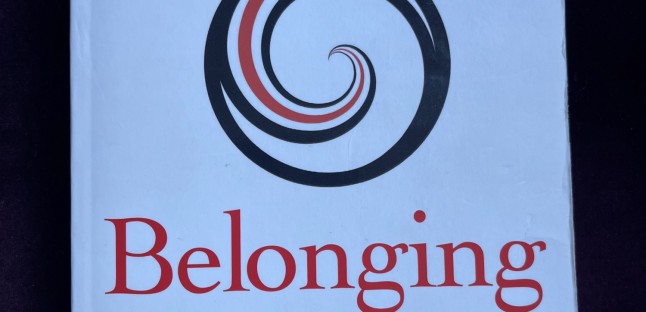Latest posts
A masterclass in creating value
What’s going on at parkrun?
Virtue-signalling all the way to the bank
Bud Light: brand purpose or virtue-signalling?
The Coddling of the American Mind, by Greg Lukianoff and Jonathan Haidt
Belonging, by Owen Eastwood
Such a simple thing
The Long Win, and The Scout Mindset
The Cult of We by Eliot Brown and Maureen Farrell
Coffee and covid modelling
By theme
Marketing strategy
Insight & metrics
Innovation & inspiration
Brand & positioning
Marketing communications
Business purpose
Leadership
By industry sector
Financial services
Retail
FMCG
Technology & start-ups
Consumer services
Business to business
Other sectors
By type
Books
Comment
Quotes
Thought leadership
In Owen Eastwood’s book, Belonging, there’s a chapter about the South Africa cricket team after the end of apartheid. It’s worth reading this book for that chapter alone. One result was that they changed their name from the Springboks to the Proteas. But of course, a name change without real change is nothing. Eastwood was there when the real change happened, and it’s spine-tingling.
I say this because there’s a lot of Maori legend and new-agey type stuff early on in the book, not least the subtitle on the front cover: “Unlock your potential with the ancient code of togetherness”. Don’t be deterred. It’s worth it. Eastwood is a native New Zealander who works with sports teams, particularly rugby teams, around the world. His ideas about how you build shared purpose and overcome differences are relevant to any team effort in the workplace, though it’s likely that only intact teams who are planning a future of working together will be able to do the fundamental work building trust and shared identity that he writes about.
This book isn’t only relevant for team-building, though. I see a strong resonance for brand managers in his ideas about a shared history, and how each of us is part of an unbroken chain in our team or tribe. I’ve always found it helpful to uncover the origin stories of a brand or company, the anecdotes people tell that capture its essence. Here’s an example. A hundred years ago the City of New York was ready to install its first city-wide telephone system. The Swedish telecoms giant, Ericsson, bid against the local competitor Bell. You’d expect the locals to know the market and to have the advantage. Bell proposed a system that could accommodate up to two thousand households, as per the brief, confident that telephony was a luxury most would never afford. Ericsson, with its Swedish concept of egalitarianism, proposed a modular system which could be expanded over and over, adding more households as the cost fell and demand grew. It was not part of their thinking to design something that would be limited to the fortunate few. Roll forward almost a century, and Ericsson was working more in mobile technology than the old-fixed line system that they’d installed in New York City. Their engineers invented a technology for short-distance communication between mobile devices. They named it after a Viking King, Bluetooth, and made it available without charge to the entire industry. Was that good for business? Maybe, maybe not. They did it because it was in their nature, a result of real, internalised values which had served them well for over a hundred years. In both cases, Ericsson’s choice was what was best for the majority, rather than for themselves.
Eastwood has also worked with elite sports teams in the UK. He writes about the England football team, whose current manager Gareth Southgate brought him in. You don’t have to be interested in sport, though, to follow his stories and see value in his ideas. The writing is personal, engaging and full of individual stories, making it an easy read. As the photo shows, it’s a book that people pass around with enthusiasm.
Latest posts
A masterclass in creating value
What’s going on at parkrun?
Virtue-signalling all the way to the bank
Bud Light: brand purpose or virtue-signalling?
The Coddling of the American Mind, by Greg Lukianoff and Jonathan Haidt
Belonging, by Owen Eastwood
Such a simple thing
The Long Win, and The Scout Mindset
The Cult of We by Eliot Brown and Maureen Farrell
Coffee and covid modelling
By theme
Marketing strategy
Insight & metrics
Innovation & inspiration
Brand & positioning
Marketing communications
Business purpose
Leadership
By industry sector
Financial services
Retail
FMCG
Technology & start-ups
Consumer services
Business to business
Other sectors
By type
Books
Comment
Quotes
Thought leadership
